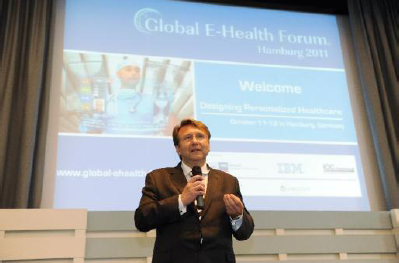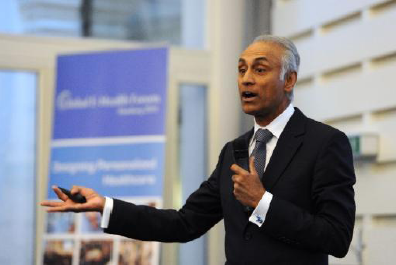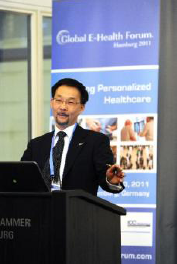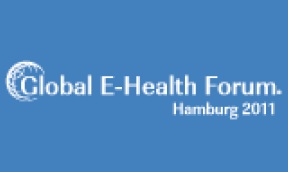More than 200 delegates from 30 countries followed the invitation to this year’s Global E-Health Forum entitled “Designing Personalized Healthcare”. In presentations and workshops, speakers from Canada, China, Egypt, New Zealand, Russian Federation, U.S.A. and various European countries presented their strategies and best practices.

Global thought leaders and stakeholders from all sectors of healthcare used this unique opportunity to exchange views and discuss solutions for ensuring a sustainable, patient-centric healthcare delivery. The considerable potential of personalized healthcare in this context was acknowledged by all conference delegates.
“We all are aware that demographic shifts, the impact of globalization and an increased burden of chronic diseases and expensive treatments are considerable challenges for our healthcare systems. We all agree that in view of limited budgets and the increasing demand for high-quality healthcare services, new cost-efficient, reliable and interconnected systems need to be developed. And I guess we all believe that e-health can make a significant contribution to ensure high-quality, sustainable healthcare system”, said Ljubisav Matejevic, Founder and Honorary Chairman of the Global E-Health Forum at the official reception in the U.S. Consulate General in Hamburg.

How Canada, partner country of this year’s Global E-Health Forum, transformed their healthcare systems through e-health
was explained by Richard C. Alvarez, President and CEO of Canada Health Infoway. Challenges and opportunities of personalized healthcare were presented by Chai Chuah, National Director, National Health Board Business Unit, New Zealand Ministry of Health. Prof. WEN Ze Huai of the Research Center Guangdong Academy of Chinese Medical Sciences lectured on designing personalized healthcare for integrated medicine (combination of the practices and methods of traditional Chinese medicine with modern medicine) by using e-health.

Dr. Eric M. Liederman, Director of Medical Informatics, The Permanente Medical Group explained in his keynote how to achieve a balance between protecting privacy and security, and fostering high quality patient care by practical examples from Kaiser Permanente.

And Markus Habetha-Eisenbarth, Project Manager eHealth of Asklepios asked the question what healthcare providers can learn from the industry and from social media with regard to the development of e-health services.
During the panel discussion, e-health was clearly identified as a key enabler for the evolution process towards personalized healthcare.
However, healthcare that is proactive, instead of reactive, gives the patient the opportunity and the responsibility to become more involved in their own health. This issue was emphasized by several conference delegates sharing their thoughts via twitter during the panel discussion. The ultimate goal of personalized healthcare will be to shape not only diagnostic but also preventive care to match each person’s unique characteristics.
Apart from the two-day conference program, the initiators of the Global E-Health Forum – the Hamburg Chamber of Commerce, IBM and ICC Deutschland – also organized guided tours in five different Hamburg hospitals, three of them being Asklepios clinics. The Asklepios Hospital Group again supported the Global E-Health Forum as cooperation partner.


















